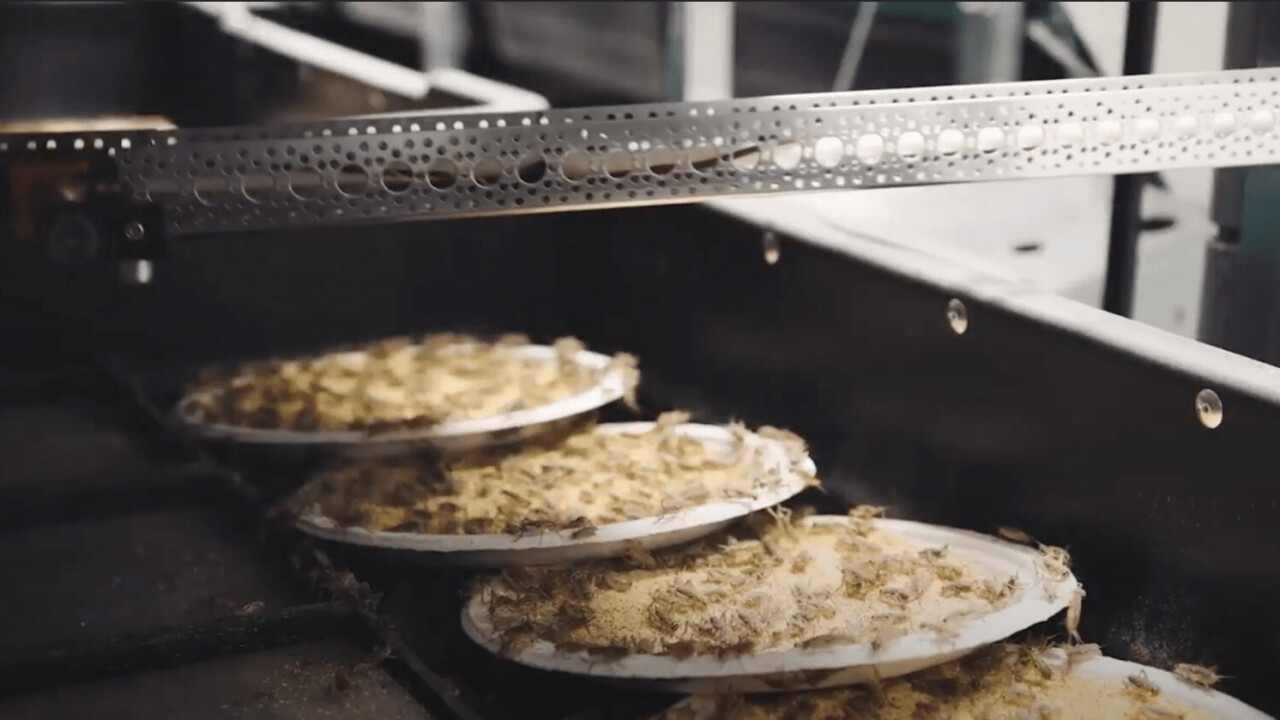
Earth’s expanding population and unequal distribution of natural resources are pushing the planet towards a food insecurity crisis.
One solution to the problem is adding an unusual ingredient to our diets: crickets.
The insects have a high protein content and low environmental footprint that could provide a sustainable alternative to meat and fish.
They might not have the most appetizing appearance, but looks can be deceiving: crickets are renowned for their subtle nutty flavor, crunchy texture, and exquisite astringency.
At least, that’s what I’ve been told. My religious beliefs sadly forbid me from indulging in the delicacy — but that doesn’t mean you have to miss out. And thanks to AI, the chirpy critters could be arriving on your plate sooner than you think.
A team led by the Aspire Food Group plans to bring the creatures from farm to fork by building the world’s first fully automated insect manufacturing site.
The crickets will then be turned into food products, including protein powder and bars.
[Read: How do you build a pet-friendly gadget? We asked experts and animal owners]
The project is the first time that industrial automation, IoT, robotics, and AI will be deployed in climate-controlled, indoor vertical agriculture with living organisms.

Inside the facility, cricket production bins equipped with custom sensors will provide an overall picture of the plant’s health at any time.
Deep learning developed by Canadian startup DarwinAI will then analyze the data to unearth insights that can improve efficiencies.
This will create a feedback loop that allows plant conditions to be changed in real-time as conditions change.
DarwinAI CEO Sheldon Fernandez told TNW that the AI will analyze a range of data, including videos of the crickets to detect biological changes:
One example is fluctuating the environment based on input signals to maximize cricket yield. Operators can leverage the insights from our system to adjust critical variables, like humidity control.
The project has received funding from Next Generation Manufacturing Canada (NGen), an industry-led organization that’s supported by the Canadian government.
NGen Canada CEO Jayson Myers told TNW that AI will play a critical role at the facility:
It is certainly an integral part of many aspects of the Aspire project, from environmental controls, process optimization, equipment efficiency, to how materials can be re-used to enhance the circular economy and environmental aspects of the project.
The plant will begin operations in the first quarter of 2022. It ultimately aims to produce nearly 20,000 metric tonnes of products annually.
The facility is located in London, Ontario, but the modular design and global distribution of crickets mean the tech can potentially be deployed anywhere. It might not be long before you find yourself chowing down on the crunchy creatures. Grubs up!
Get the TNW newsletter
Get the most important tech news in your inbox each week.




